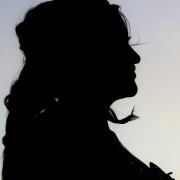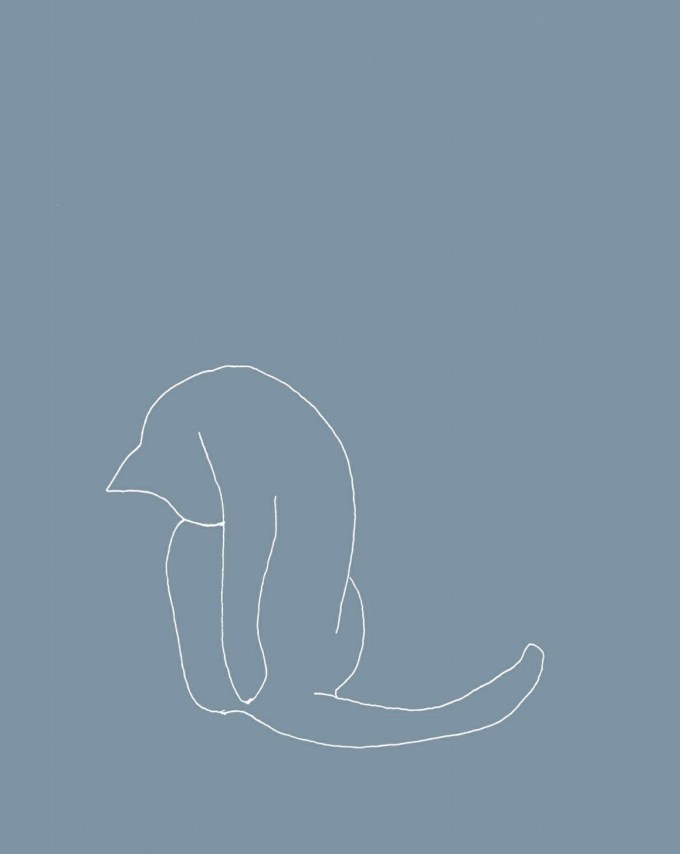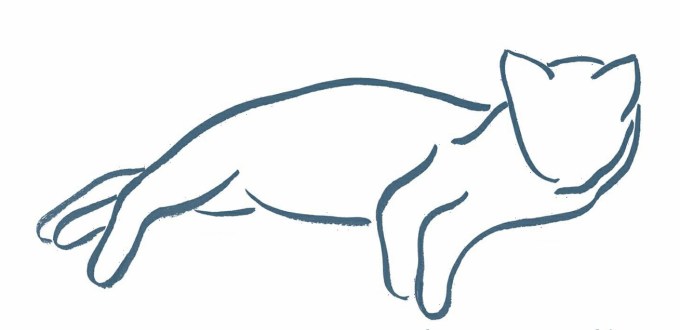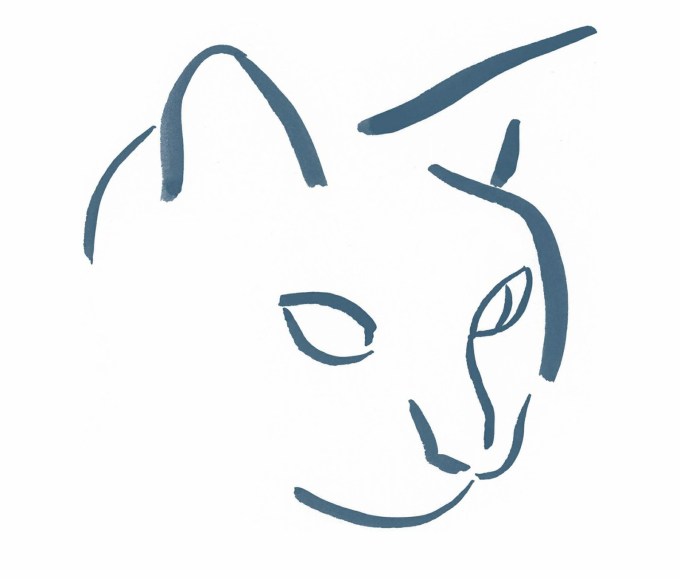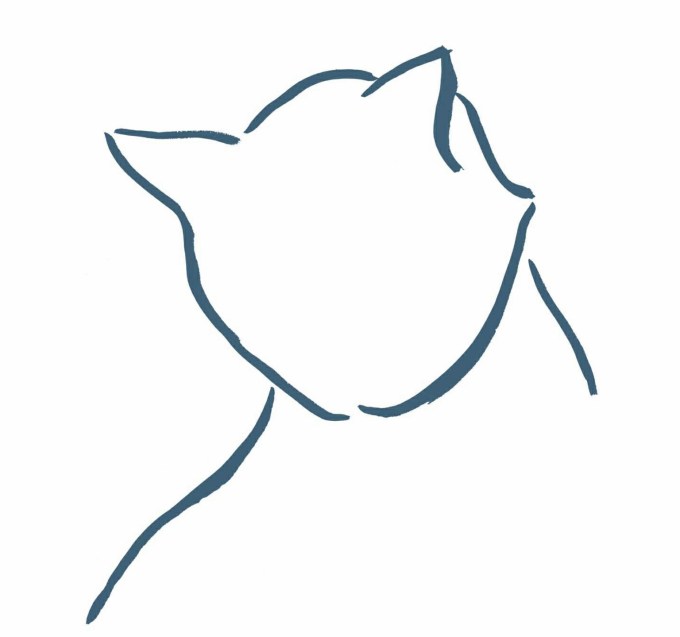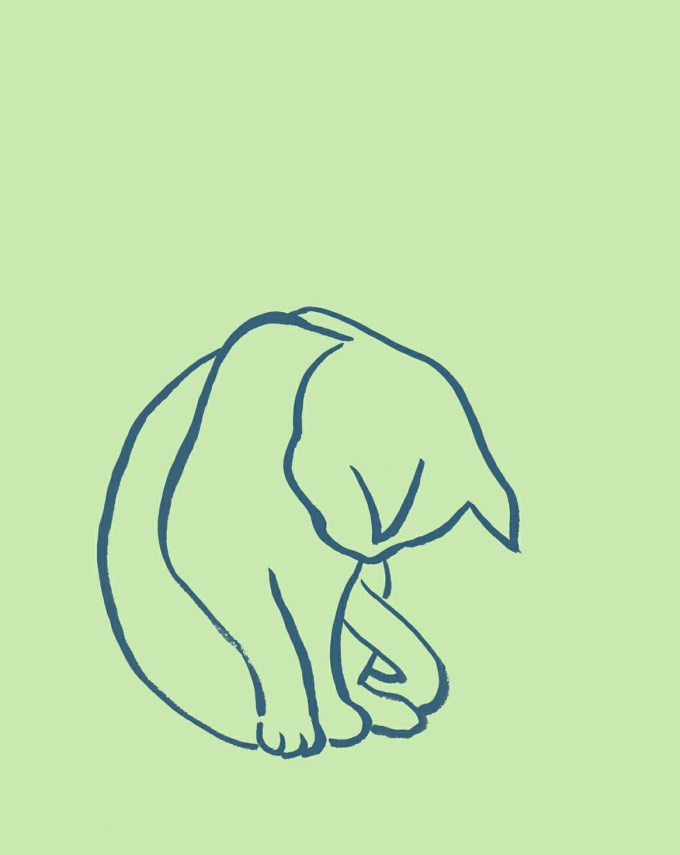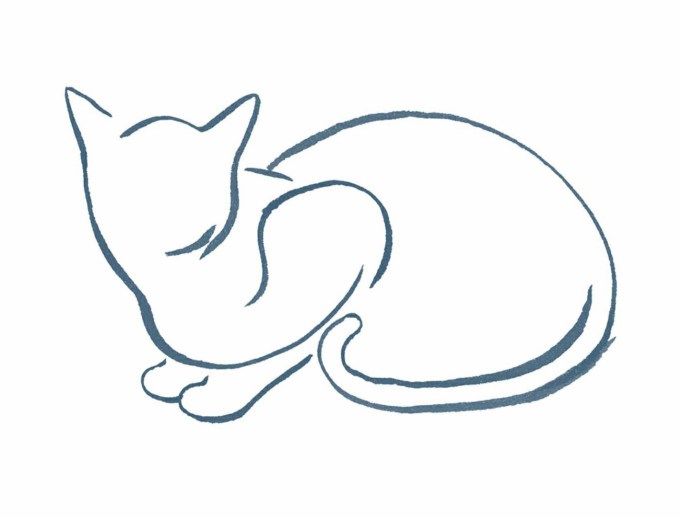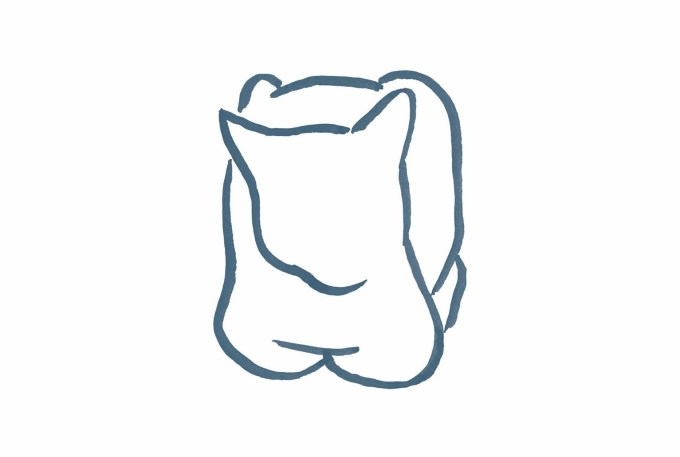“If you think long enough about what you see in a cat, you begin to suppose you will understand everything, but its eyes tell you there is nothing to understand, there is only life.”
By Maria Popova
“A cat must have three different names,” T.S. Eliot proclaimed in the iconic verses that became the basis of one of the longest-running and most beloved Broadway musicals of all time. “You can never know anyone as completely as you want. But that’s okay, love is better,” Caroline Paul wrote generations later in her gorgeous memoir of finding the meaning of life through a lost cat. Between our longing for love, our urge to name what we barely understand, and our yearning to know the ultimately unknowable lies the eternal allure of the cat as an intimately proximate but impenetrably distant human companion.
That paradoxical pull is what the great short story writer and novelist Leonard Michaels (January 2, 1933–May 10, 2003) explores in one of his least known, loveliest and quietest masterpieces, simply titled A Cat (public library) — a posy of prose poems, of miniature meditations playful and profound, on the imponderable nature of our feline companions, illustrated with consummately expressive line drawings by artist Frances Lerner and brought back to life a quarter century after its original publication with a new introduction by Sigrid Nunez.
Michaels writes:
A cat is content to be a cat.
[…]Nothing is more at home in the world than a cat. Flowers, compared to a cat, seem too assertive, even vulgar — their peculiar colors, their showy shapes. Sprawled in sunlight, a cat dissolves, pours free of its shape, and becomes one with the ground. Sliding along your leg, it gives you a sense of fusion. A cat makes itself one with anything. It is at home in the world. A cat defines a home.
“There is no terror like that of being known,” Emerson wrote in his journal as he faced his inability to let himself be loved. This, perhaps, is why the knowing gaze of a cat’s enormous alien eyes so penetrates the human soul with a terrifying enchantment. Michaels writes:
Face-to-face with a cat, you see almost no mouth. Its expression is unforthcoming, uncommunicative. Eyes and ears. A tiny, cool, exquisite nose. Without much mouth, the face seems uninterested in eating, and the eyes seem large and salient, as though a cat wants only to observe, to know things. A cat’s whiskers, like exquisite antennae, read the airiest messages.
With great subtlety of insight, Michaels plays with our perennial tendency toward projection — on our lovers, on trees, on “our” cats (which are, in their essence, “not owned by anybody,” as Michaels reminds us):
You look at a cat, and it looks at you. You have the scary idea that a cat is a kind of person. You look more carefully and let the cat’s eyes tell you what it sees. It sees you are a kind of cat.
A cat always looks into your eyes, as if it knows that you see it with your eyes. As if it knows? What a mad idea. A cat doesn’t even know it has eyes, let alone know that it is seeing you with its eyes. And yet it knows, it knows.
There is, of course, the obligatory contrast between a cat and a dog, nowhere more pronounced than in the existential challenge of loneliness. Michaels writes:
When it comes to loneliness, a cat is excellent company. It is a lonely animal. It understands what you feel. A dog also understands, but it makes such a big deal of being there for you, bumping against you, flopping about your feet, licking your face. It keeps saying, “Here I am.” Your loneliness then seems lugubrious. A cat will just be, suffering with you in philosophical silence.
In one of the lushest passages in this tiny gem of a book, Michaels considers the cat’s tail as an appendage of consciousness — the alien, impenetrable consciousness that seems to fold universes of knowing into its modest cortex. Three years after Ursula K. Le Guin observed in her superb essay on beauty, mortality, and growing older that “cats know exactly where they begin and end” and that the tail is “a cat’s way of maintaining a relationship” with space and selfhood, Michaels writes:
The tail of a cat lashes, curls, and swishes slowly. It stands straight up. It vibrates. It blooms before battle and looks three times thicker. It is a flag of feelings — courage, shame, pleasure, fear. It can become the hook of a sickle, or a shepherd’s crook, or a rod, or a plume, or an S, and it can press down to seal a cat’s heinie. It is the poetry and prose of a cat. When a cat is thoughtful, the tail moves like a part of the mind. It is a moody river, a smokey flow. It is a sentence, the material shape of an idea. It is an announcement, a revelation, and an artistic gesture, beautiful even if only to express boredom.
Another passage emerges as a splendid missing verse from poet Mark Strand’s lyrical celebration of clouds:
A cat bunched up and sleepy is like a cumulous cloud. Stretched out on its side, flat along the ground, it is like a stratus cloud. Clouds piled up high are like a great council of cats in silent meditation.
The cat’s great gift, Michaels intimates, is not that of being our silent witness but of being our mirror, revealing us to ourselves in its nondisclosures, revealing the deepest truths in its withholdings:
If you think long enough about what you see in a cat, you begin to suppose you will understand everything, but its eyes tell you there is nothing to understand, there is only life.
Complement the slender and splendid A Cat with The White Cat and the Monk — a lovely ninth-century ode to the joy of companionable purposefulness, newly illustrated — and Muriel Spark on how a cat can boost your creativity, then revisit the lavish Big New Yorker Book of Cats.




